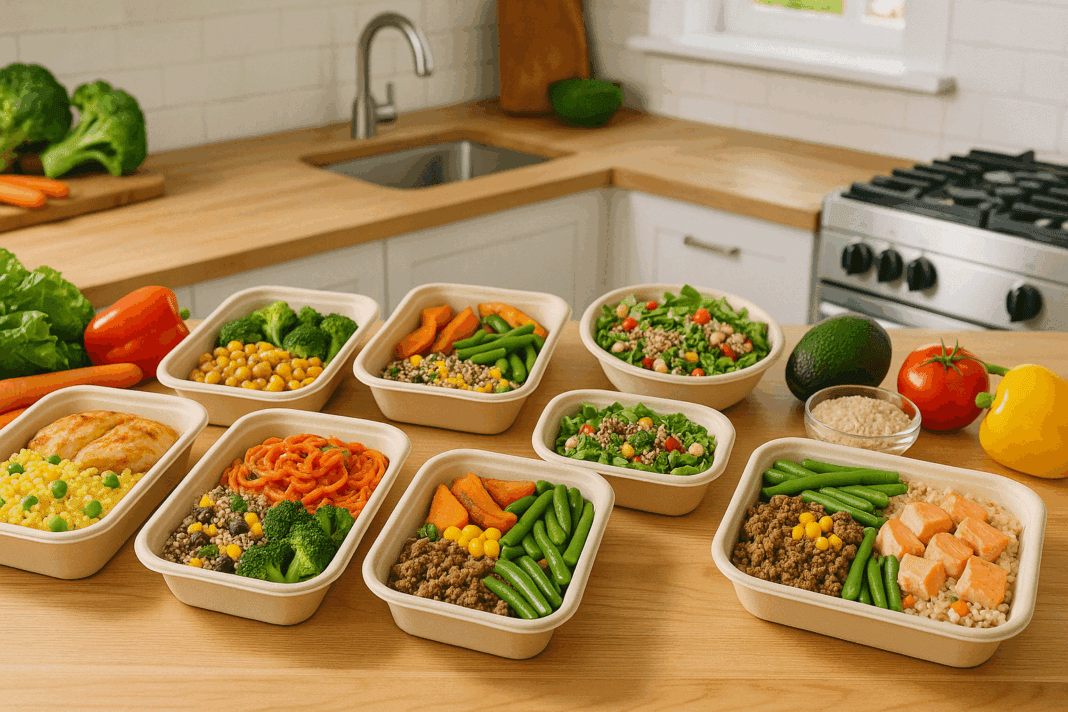In today’s fast-paced world, time often dictates our dietary choices. With busy schedules and mounting responsibilities, ready meals and pre prep meals have emerged as a practical solution for millions. Yet, while the convenience of these options is undeniable, questions remain: Are ready meals a smart choice for health-conscious consumers? Can you find pre prep meals near you that support a balanced lifestyle? This comprehensive exploration delves into these pressing concerns, blending expert insights with nutritional science to guide you in making informed, sustainable choices.
You may also like: Smart Meal Prep for Weight Loss: Expert-Approved Lunch Ideas and Recipes to Stay on Track
The Rise of Ready Meals: Convenience Meets Demand
The modern surge in ready meal consumption reflects more than a mere preference for convenience. It signals a broader shift in lifestyle dynamics. Urbanization, dual-income households, and the digital age have collectively shrunk the time people have for cooking. Ready meals provide a straightforward answer: heat, eat, and go. They come in various formats, including refrigerated, frozen, or shelf-stable packages, and cater to a spectrum of dietary needs from vegan to keto.
However, not all ready meals are created equal. The market is saturated with options that vary widely in nutritional quality, ingredient transparency, and portion control. Some are nutritionally balanced, thoughtfully prepared with whole food ingredients, while others are laden with sodium, saturated fats, and preservatives. Evaluating these distinctions is essential to avoid compromising health for convenience.

Understanding Pre Prep Meals Near You: What Sets Them Apart?
The term “pre prep meals near me” often refers to locally available, pre-portioned meals designed for ease without sacrificing nutrition. Unlike standard mass-produced ready meals, these are often crafted by local meal prep companies or culinary startups prioritizing whole ingredients, clean eating principles, and personalization.
Finding pre prep meals near you may involve exploring farmers’ markets, local co-ops, or health-oriented food delivery services. Many offer meal kits or fully cooked dishes tailored to specific dietary patterns, including low-carb, plant-based, or Mediterranean. Choosing such services supports local economies and reduces the carbon footprint associated with large-scale industrial food production.
Are Ready Meals Healthy? Evaluating the Nutritional Landscape
To determine whether ready meals are a smart choice, one must look beyond packaging claims and marketing buzzwords. A truly healthy ready meal prioritizes nutrient density, not calorie count alone. The presence of lean proteins, high-fiber vegetables, whole grains, and healthy fats are strong indicators of a balanced option.
Reading the ingredient list is vital. Short, recognizable ingredients suggest minimal processing. Watch out for added sugars, excessive sodium, artificial additives, and trans fats—common culprits in low-quality ready meals. Portion size matters too; even a nutritious meal can lead to overconsumption if the portion exceeds dietary needs.
Understanding how ready meals stack up against dietary patterns like the Mediterranean or flexitarian diet can provide context. Many experts agree that meals aligned with these approaches—rich in legumes, vegetables, nuts, and whole grains—are more likely to support long-term health outcomes, including cardiovascular wellness and metabolic health.

How to Spot High-Quality Pre Prep Meals Near You
With the growing demand for nutritious convenience, meal prep services are refining their offerings. To identify high-quality pre prep meals near you, assess whether they are:
- Prepared with fresh, whole-food ingredients
- Clearly labeled with nutritional information
- Free from artificial additives and preservatives
- Customizable for dietary needs or restrictions
- Aligned with recognized dietary standards (e.g., USDA MyPlate, Mediterranean diet)
Many reputable services now collaborate with registered dietitians to design balanced meal plans. This adds a layer of nutritional authority and helps ensure that meals meet both macro- and micronutrient targets essential for optimal health.
The Role of Whole-Food Ingredients in Meal Prep Quality
Whole-food ingredients are the cornerstone of any health-supporting diet. Meals based on minimally processed foods like fresh vegetables, legumes, nuts, whole grains, and lean proteins offer robust health benefits, including improved digestion, stable blood sugar levels, and enhanced satiety.
Ready meals and pre prep options that emphasize whole-food components tend to be more filling and provide a broader array of nutrients. They also often contain less added sugar and fewer refined oils, which contribute to inflammation and chronic disease risk.
Many local providers take pride in using seasonal produce, which not only supports local agriculture but also enhances flavor and nutritional value. When evaluating options, consider whether the menu changes seasonally or if sourcing transparency is offered. These details speak volumes about the quality and care behind the product.
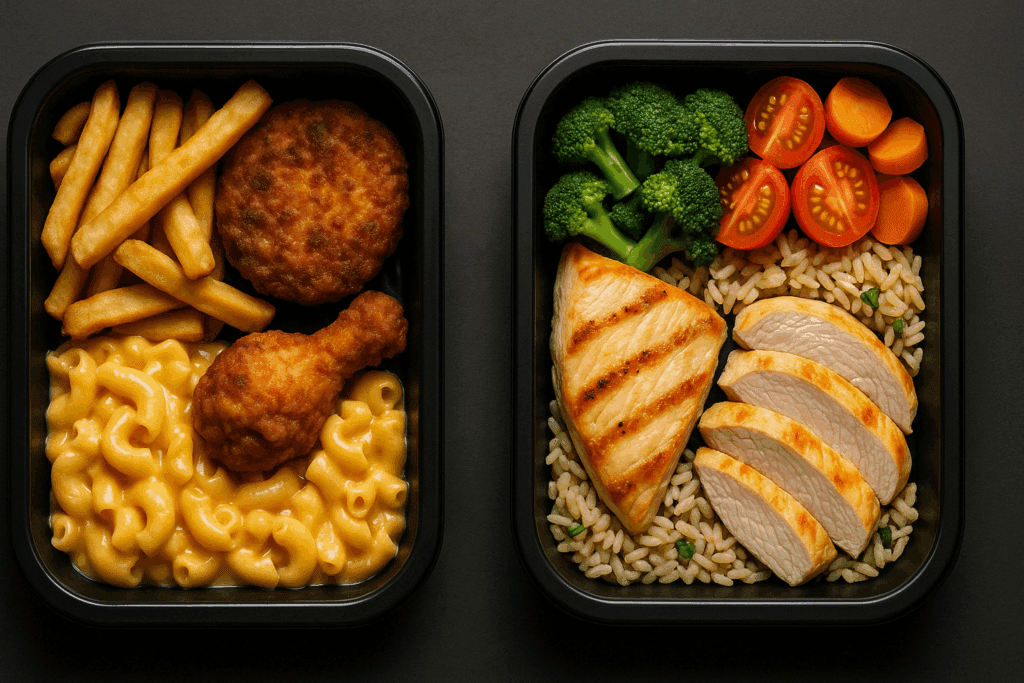
Ready Meals and Dietary Patterns: A Look at Keto, Low-Carb, and More
For individuals following specific dietary frameworks, the compatibility of ready meals becomes even more critical. Those adhering to low-carb or ketogenic diets, for instance, often seek meals that are high in fats, moderate in proteins, and extremely low in carbohydrates. But is keto a low carb diet? In essence, yes—keto is a stricter subset of low-carb eating, where carb intake typically falls below 50 grams per day to induce ketosis.
Understanding the distinction between the ketogenic diet vs low carb plans is crucial when selecting pre prep or ready meal options. Some meals may label themselves as low-carb but still contain enough carbohydrates to disrupt ketosis. The difference between a low carb diet keto diet and a traditional keto meal lies in macronutrient ratios, with keto requiring more meticulous planning.
Questions like “is keto no carbs?” or “is keto a good diet for long-term health?” are common. While keto isn’t truly a zero-carb diet, it does minimize them significantly. Emerging research suggests potential benefits of keto for weight management and metabolic health, though concerns remain regarding its sustainability and long-term impact. Thus, asking “is a keto diet sustainable?” is not only valid but necessary for anyone considering it beyond short-term use.
Navigating these dietary nuances requires a meal provider that clearly communicates macro breakdowns. When evaluating pre prep meals near you, look for services that offer keto-specific lines or low-carb-friendly options with full ingredient transparency.
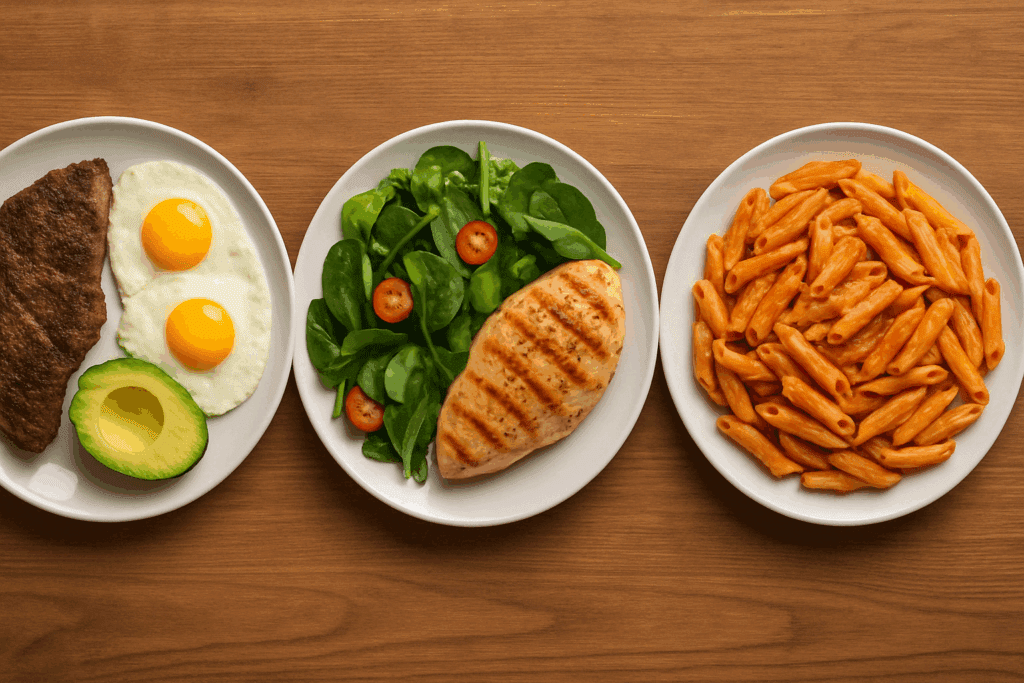
Balancing Macronutrients in Pre Prep Meals
Nutrient balance is the hallmark of a health-promoting meal. Whether you follow a standard diet, Mediterranean plan, or ketogenic protocol, striking the right balance of protein, fats, and carbohydrates is key to maintaining energy, supporting muscle mass, and managing hunger.
For instance, meals high in refined carbs and low in fiber can spike blood sugar and leave you feeling hungry soon after eating. On the other hand, meals rich in complex carbohydrates like quinoa or lentils provide sustained energy and promote digestive health. Including healthy fats from sources like olive oil, avocado, and nuts adds satiety and supports brain function.
The best pre prep meals near you should reflect this understanding of balance. Many services now allow for personalization, where you can select meals that align with your macro preferences, whether you need high-protein options for muscle building or carb-conscious meals for glucose control.
The Importance of Portion Control and Caloric Awareness
Even the healthiest meals can contribute to weight gain if consumed in excess. Portion control remains a critical factor in any meal plan, especially when relying on pre-prepared food. Ready meals, by nature, offer a defined portion, which can help prevent overeating. However, not all companies get it right—some meals are oversized or undernourishing.
Look for meal prep companies that base portion sizes on established dietary guidelines or that allow customers to choose based on caloric needs. Whether your goal is weight maintenance, loss, or muscle gain, meals should provide appropriate energy intake to support that goal. Transparent calorie labeling is a must-have feature when selecting the best options.
Moreover, many companies offer multiple portion sizes (such as small, regular, or large) to accommodate different needs. This flexibility helps you build a meal routine that aligns with your lifestyle, appetite, and nutritional goals.
Evaluating the Cost vs. Benefit of Pre Prep Meals
Cost is a frequent consideration when deciding whether ready meals or meal prep services are worthwhile. At first glance, paying $10 to $15 per meal may seem high compared to home cooking. However, this price often reflects not only ingredients but also labor, packaging, and delivery.
When compared to dining out or ordering takeout, pre prep meals near you often provide better nutritional quality at a similar or even lower price. The real value lies in time saved, portion consistency, and reduced food waste. For busy professionals, parents, or students, these benefits can significantly outweigh the costs.
Some services offer subscription discounts, meal bundles, or loyalty rewards that help mitigate expenses. And when you factor in the reduced likelihood of impulse eating or snacking on unhealthy options, pre prep meals may contribute to overall savings on healthcare and lifestyle spending.
Environmental and Ethical Considerations
Beyond personal health, choosing the right ready meal provider can also impact the environment and local communities. Locally sourced, seasonally prepared pre prep meals typically require less transportation and use more sustainable packaging. Some services even offer reusable containers or compostable options.
Ethical sourcing is another important factor. Meals prepared with organic produce, grass-fed meats, or fair-trade ingredients promote responsible consumption. Companies that partner with local farms or employ sustainable practices signal a commitment to environmental and community wellness.
Supporting such businesses can amplify the positive impact of your dietary choices, turning a meal into a statement of values. Transparency about sourcing, production methods, and social responsibility initiatives is a strong indicator of a company’s trustworthiness and long-term commitment to quality.
How to Find the Best Pre Prep Meals Near You
With countless options available, narrowing down the best pre prep meals near you involves a bit of research and personal experimentation. Start by identifying your primary goals: Are you looking to eat cleaner, follow a specific diet, save time, or manage weight? From there, assess local providers on key criteria such as ingredient quality, customer reviews, menu variety, and price transparency.
Seek out services with strong online presence, positive testimonials, and third-party nutrition certifications if available. Many companies now offer trial periods or sample packs, allowing you to test the service before committing long-term. Prioritize providers that offer full disclosure of nutritional content and ingredient sourcing.
Don’t hesitate to ask questions. Reputable companies should be open to inquiries about how meals are prepared, whether they use organic produce, or how often the menu changes. Personalization, flexibility, and customer service are additional markers of a company’s dedication to consumer satisfaction.
Making an Informed Choice: Ready Meals vs. Cooking from Scratch
Despite their benefits, ready meals should not entirely replace home cooking. Preparing meals from scratch remains the gold standard for full dietary control, culinary creativity, and family engagement. Yet ready meals can coexist with home-cooked food as part of a flexible, modern dietary strategy.
Using pre prep meals to supplement busy days or to explore new ingredients and cuisines can enhance rather than detract from a whole-food diet. The key lies in mindfulness: choosing meals that align with your health goals, reflect your values, and provide genuine nourishment. When selected with care, ready meals become a tool for empowerment rather than a dietary crutch.
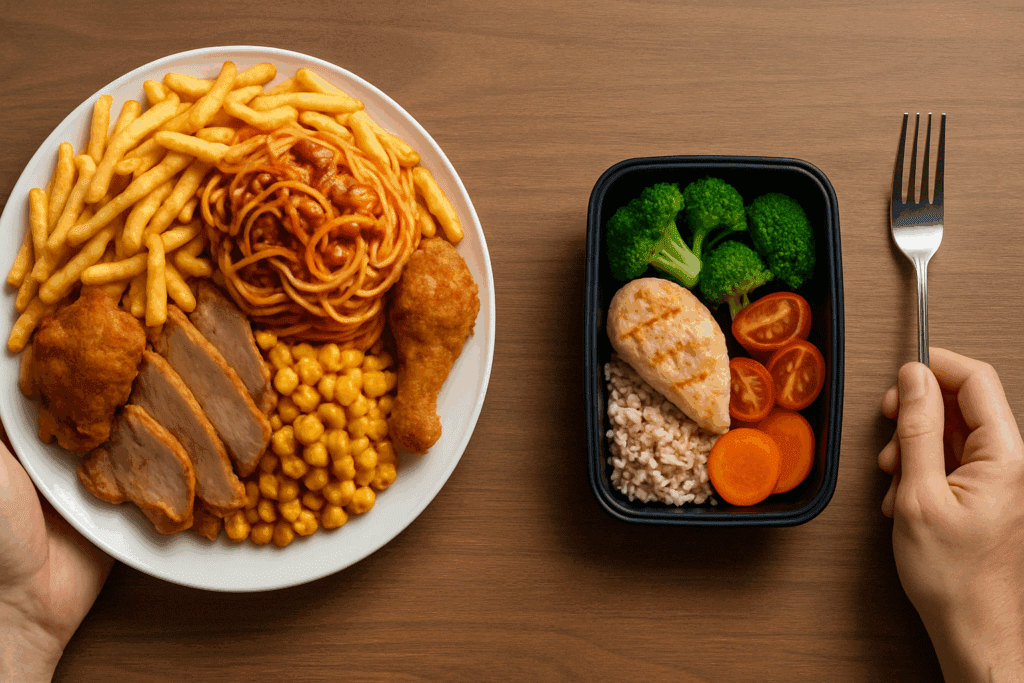
Frequently Asked Questions: Choosing Healthy Ready Meals and Pre Prep Meals Near You
1. Can ready meals provide enough nutritional diversity for long-term health?
Yes, but it depends significantly on how they are composed and rotated. One of the biggest limitations of many ready meals is the lack of variety in ingredients, which can lead to nutritional gaps if relied on exclusively. However, if you deliberately rotate your ready meals throughout the week—incorporating different protein sources, vegetables, grains, and legumes—you can maintain a more diverse micronutrient profile. A smart approach is to supplement ready meals with fresh fruits, fermented foods, or mixed salads to enhance both fiber intake and probiotic diversity. When selecting ready meals, check whether the manufacturer emphasizes seasonal ingredients or includes globally inspired recipes, which can indicate an intent to support nutrient diversity over time.
2. What are the best strategies for finding trustworthy pre prep meals near me?
Locating high-quality pre prep meals near you involves more than a quick Google search. Beyond customer reviews, consider looking into certifications or affiliations such as dietitian partnerships, USDA organic labeling, or non-GMO sourcing. Many meal prep businesses now provide transparency reports on sourcing and kitchen practices. Another reliable tactic is to follow local health influencers or nutrition-focused community groups on social platforms, where members often share firsthand experiences with nearby pre prep services. You might also explore coworking spaces, fitness studios, or boutique gyms, where curated partnerships with local meal prep companies often arise and offer exclusive access to vetted meals.
3. Are ready meals suitable for people with food sensitivities or allergies?
They can be, but consumers must exercise caution. While many ready meals today are labeled for allergens like gluten, dairy, and nuts, cross-contamination is still a concern, especially with mass-produced options. If you have food sensitivities, prioritize brands that explicitly state they use separate preparation areas or offer allergen-free certification. In contrast, some smaller providers of pre prep meals near you may allow for greater customization and ingredient transparency, giving you more control over potential allergens. Always ask for detailed ingredient lists or prep protocols to ensure the meal is suitable for your dietary restrictions.
4. How do pre prep meals near me compare to subscription meal kits nutritionally and logistically?
The distinction lies in preparation and practicality. Subscription meal kits typically offer ingredients and recipes for you to cook at home, which means you control the oil type, salt levels, and cooking technique. However, they demand time and culinary effort. Pre prep meals near you are usually fully cooked and only require reheating, offering a much faster solution without sacrificing freshness. Nutritionally, both can be balanced, but pre prep options tend to offer more consistent portion sizes and calorie counts, as they are designed with meal planning in mind. For busy professionals or parents, local pre prep meals may strike a better balance between nutrition and convenience.
5. What are the environmental implications of choosing ready meals over home cooking?
Ready meals often get criticized for excessive packaging and energy-intensive production methods. However, the impact varies significantly by provider. Companies focused on sustainability use compostable containers, renewable energy in production facilities, and route-optimized delivery systems to reduce their footprint. On the other hand, some pre prep meals near you may be more sustainable because they eliminate long-distance shipping and often use reusable containers or support local agriculture. It’s advisable to evaluate each brand’s sustainability commitment and look for third-party certifications or disclosures on carbon offsets and packaging policies. Supporting local businesses with green initiatives can transform your convenience habit into an environmentally mindful practice.
6. Can incorporating ready meals into my diet help with weight management?
Absolutely—when used strategically. Ready meals offer portion-controlled servings that can eliminate guesswork and prevent overeating, especially when you’re tracking macronutrients or trying to reduce caloric intake. To maximize results, select ready meals that are high in protein and fiber, as these help regulate appetite and promote satiety. In addition, spacing out ready meals with light, nutrient-dense snacks like cut veggies or hummus can maintain energy levels and prevent cravings. Also, incorporating pre prep meals near you that align with your dietary goals ensures greater consistency and makes it easier to adhere to a weight management plan over time.
7. What red flags should I watch for when assessing the healthfulness of pre prep meals near me?
Not all pre prep meals are created with health in mind. Watch for overly long ingredient lists that include refined sugars, hydrogenated oils, or artificial preservatives—these are red flags. Meals that lack clear nutritional labeling or don’t disclose calorie or macronutrient content may also warrant caution. Be wary of dishes that claim to be “low carb” or “keto” without transparent carb counts or ingredient sourcing, especially if you’re following a specific plan. Quality pre prep meals near you will often come with verified nutrition data, whole-food ingredient sourcing, and clear communication about preparation methods, ensuring trust and reliability.
8. How can I customize pre prep meals near me to better meet my fitness or wellness goals?
Many local meal prep companies allow for semi-customized or fully personalized orders. You can often choose to increase protein portions, reduce sodium, swap out grains for greens, or specify macronutrient targets for bulking or cutting phases. If your provider doesn’t list customization options online, reach out directly—many chefs appreciate the opportunity to tailor their offerings and expand their client base. Additionally, pairing your pre prep meals near you with supplements or hydration routines tailored to your goals (like electrolytes post-workout or adaptogens for stress support) can elevate their overall effectiveness. By integrating these meals into your broader wellness strategy, you can optimize results and save time.
9. Are ready meals appropriate for children or adolescents?
Yes, but with age-appropriate considerations. Children have different caloric and nutritional needs than adults, especially regarding calcium, iron, and essential fatty acids. Many commercial ready meals are geared toward adult macros and may be too high in sodium or too low in calories for growing bodies. When selecting ready meals for younger family members, look for options designed for kids or those featuring familiar ingredients and balanced portions. Alternatively, some providers offering pre prep meals near you create family packs or child-friendly meals with reduced sodium, milder seasoning, and greater emphasis on whole grains and vegetables.
10. What are the emerging innovations in the ready meals and pre prep meals market?
The industry is evolving rapidly with the help of food science, AI, and sustainability tech. Smart ready meals now use blockchain to trace ingredient sourcing from farm to table, ensuring ethical and transparent supply chains. Others are incorporating adaptive packaging that adjusts expiration windows based on temperature exposure, reducing waste. Meanwhile, many startups offering pre prep meals near you are leveraging AI-driven personalization, allowing customers to generate weekly meal plans based on biometric inputs or wearable data. These technological leaps are transforming ready meals from static products into dynamic tools that can respond to real-time health needs, bringing personalization and precision nutrition into the mainstream.
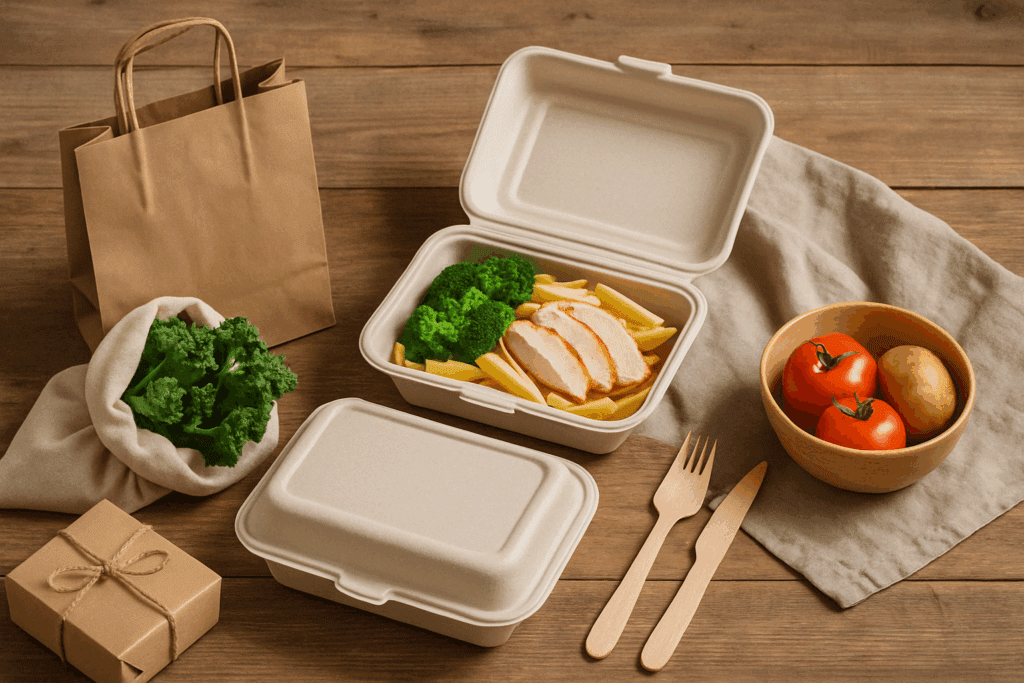
Closing Thoughts: Finding Balance with Healthy Convenience
In answering the question, “Are ready meals a smart choice?” the evidence suggests that they can be—when selected with intention, backed by nutritional expertise, and aligned with a whole-food, balanced lifestyle. Ready meals and pre prep meals near you offer an accessible way to support health without sacrificing time or taste. However, discernment is critical. Not all meals are created equal, and not all providers uphold the same standards.
By focusing on whole-food ingredients, evaluating macronutrient balance, understanding dietary compatibility—such as the nuanced differences between ketogenic diet vs low carb—and supporting sustainable practices, you can turn convenience into a strategic advantage. The future of healthy eating lies not in extremes but in adaptable, informed choices that blend nourishment with practicality. Whether you’re exploring the low carb diet keto diet framework or asking deeper questions like “is a keto diet sustainable?” your journey can be supported by high-quality ready meals crafted with care. Ultimately, health is not just about what you eat, but how you choose to eat it in a world full of options.
Was this article helpful? Don’t let it stop with you. Share it right now with someone who needs to see it—whether it’s a friend, a colleague, or your whole network. And if staying ahead on this topic matters to you, subscribe to this publication for the most up-to-date information. You’ll get the latest insights delivered straight to you—no searching, no missing out.
Further Reading:
The Benefits of Pre-Made Meals: A Perfect Solution for Your Busy Lifestyle
How can I find reliable options for healthy prepared meals that suit a busy lifestyle?

